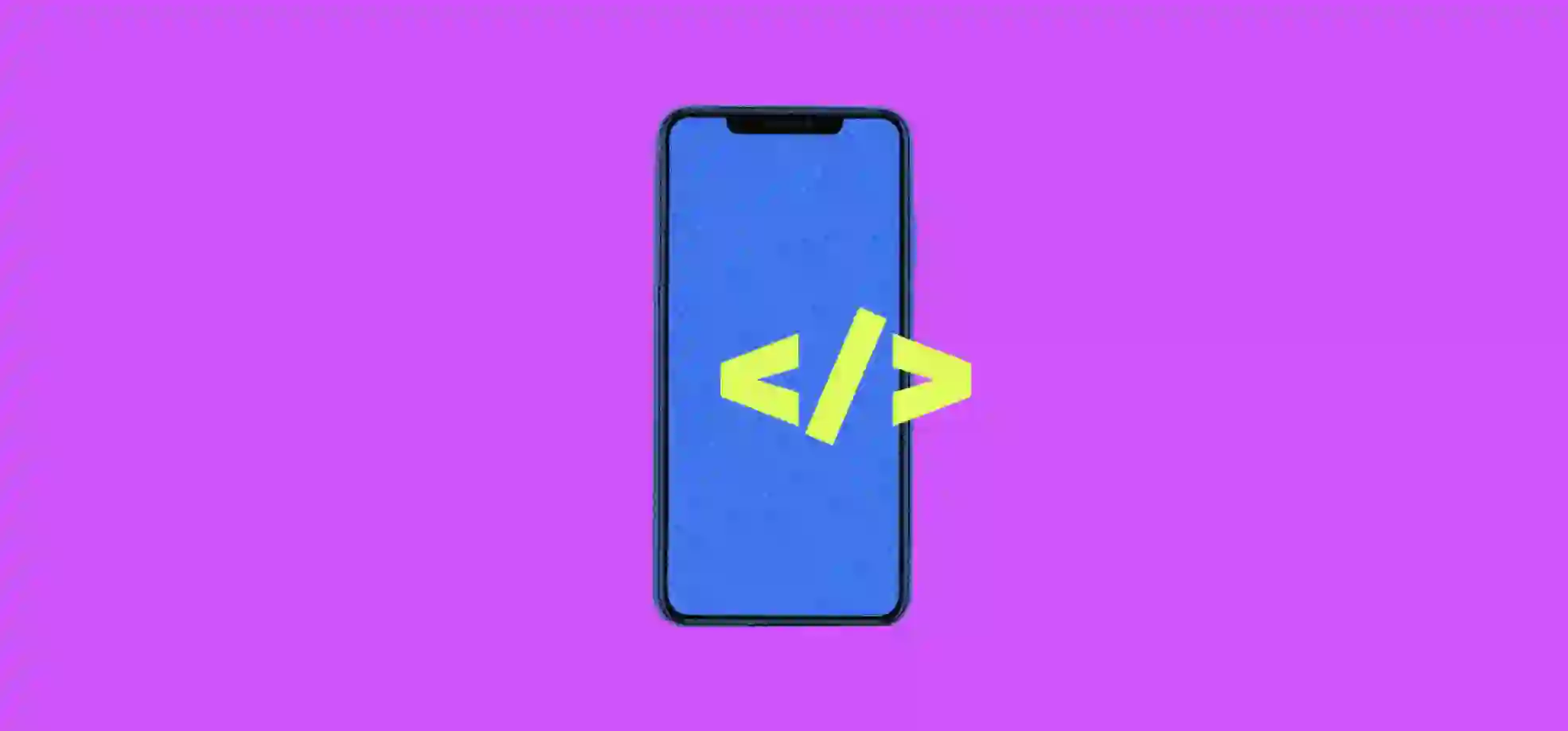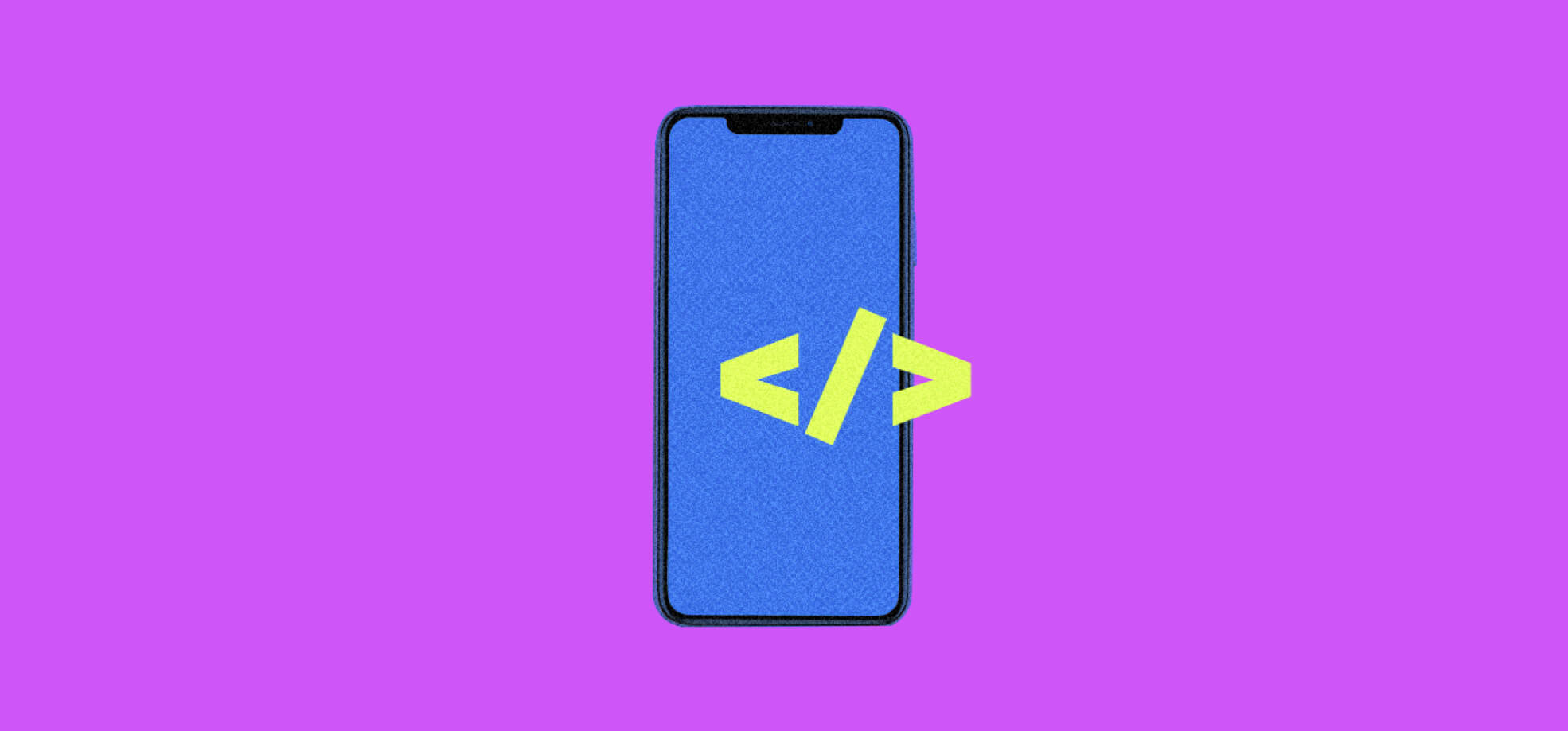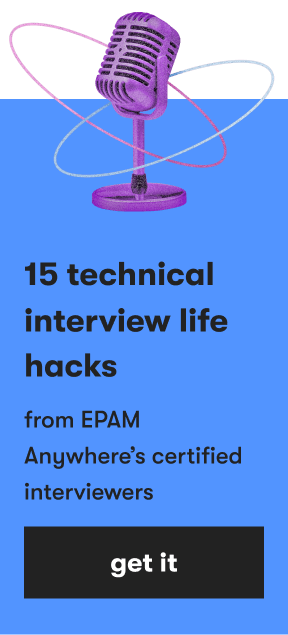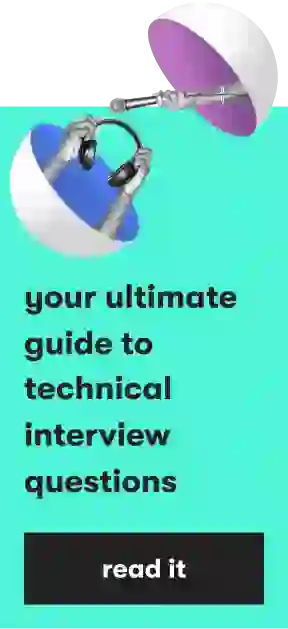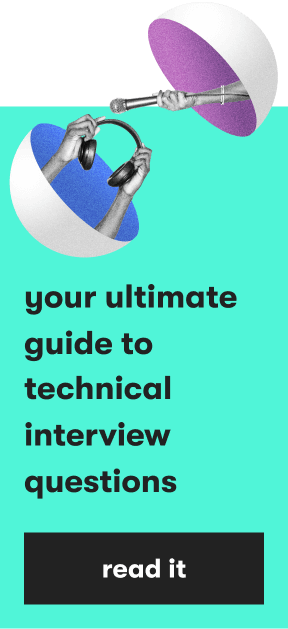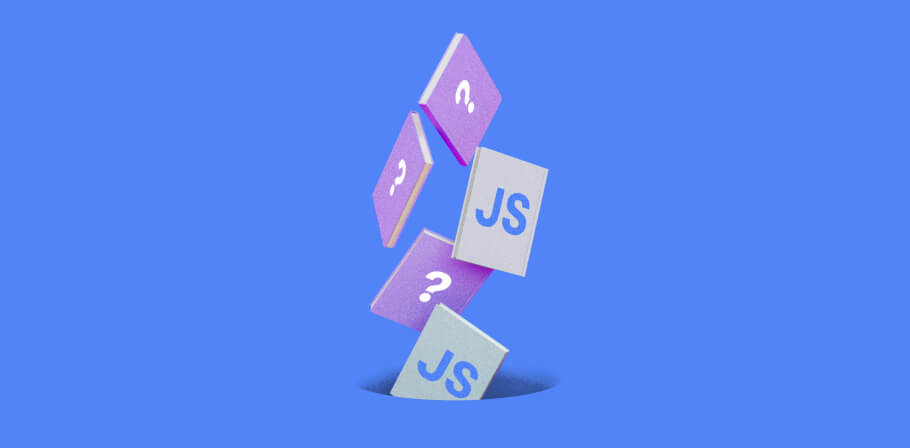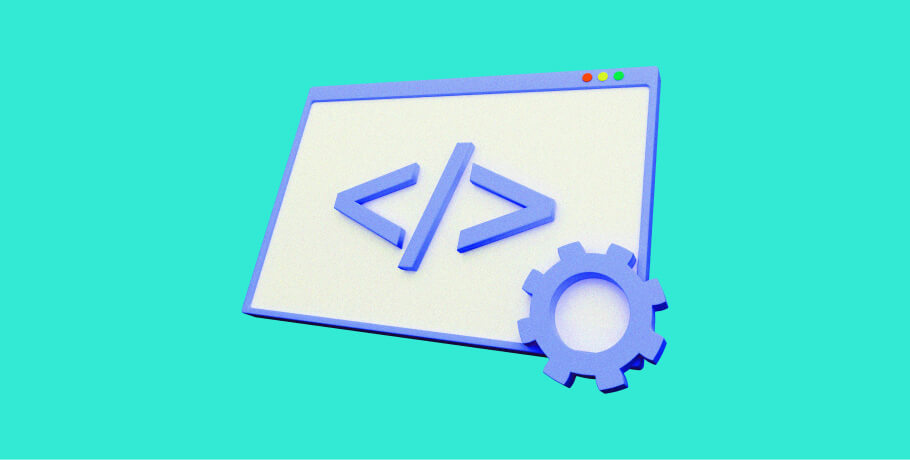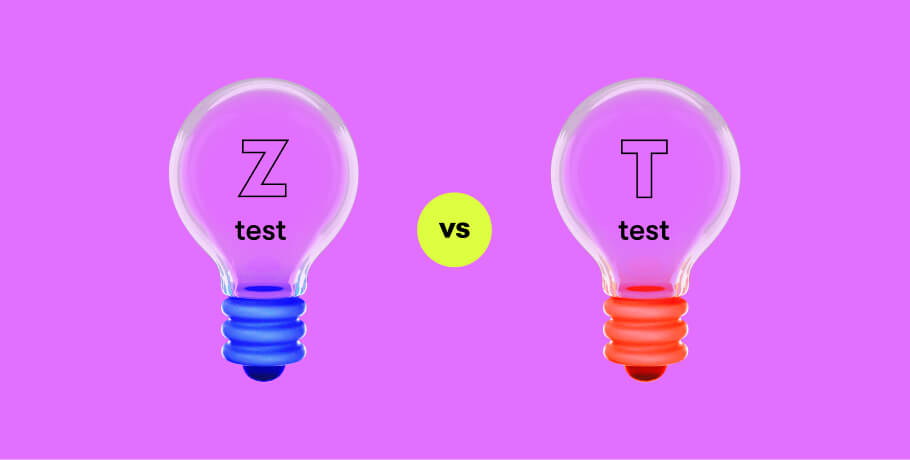Whether you’re looking for in-office or senior iOS developers jobs, you’re going to face some tough senior iOS developer interview questions. There are more than 30 million registered iOS developers according to Apple, which can mean significant competition. As a result, standing out from the crowd can be especially difficult, so your answers have to be not only accurate, but strong and unique enough to capture the hiring manager’s attention.
As with Android developer interview questions, candidates should expect the majority of what they encounter to be highly technical. Senior iOS developer interview questions are designed to separate novices from genuine experts, so hiring managers often drill into your knowledge and skills to ensure that you can excel in the role.
tired of job hunting?
Scroll no more. Send us your CV and we'll match it with our best job for you.
Top senior iOS developer interview questions asked
If you want to make sure that you’re ready, here is a look at some senior iOS developer interview questions and answers to help you prepare.
1. What are Objective-C categories?
Categories in Objective-C are a tool that adds functionality to an object without having to change the object itself or use subclassing. This ensures that the main class remains concise, while allowing any needed methods or properties to be fully accessible.
If you want to take your answer to this interview question up a notch, you can discuss a faux category and how it would be implemented. Alternatively, you could discuss a recent project that made use of categories, allowing you to reference a specific example.
2. How do you manage memory in Swift?
Automatic Reference Counting — or ARC — is used to manage app memory usage when programming in Swift. The underlying process limits the need for direct or manual memory management, since ARC frees up memory tapped by class instances once the instance isn’t required. However, ARC may require details about relationships and dependencies within the code to improve its effectiveness.
When responding to this interview question, you can go into greater detail about what ARC may require. However, if it’s early in the interview, and more complicated questions are likely to arise, keeping your response to this question brief is also acceptable.
3. What are the common design patterns recommended for iOS applications?
Referred to as “core competency” design patterns by Apple, those recommended for iOS applications include Delegate, MVC, Observer, and Singleton.
This is one of the most popular interview questions for senior iOS developer candidates, and it creates a unique opportunity for job seekers. By going beyond a simple list and discussing examples of when you’ve put various design patterns to work when you tackle this interview question, you could look like a stronger candidate.
4. What are closures in Swift? Name their types
In Swift, closures are blocks of functionality that are fully self-contained, allowing them to be shifted around and used in different parts of the broader code, not unlike Objective-C blocks or lambdas in other programming languages. Generally, there are three types of closures: global functions, nested functions, and closure expressions.
5. List key differences between Swift and Objective-C
The primary difference between Swift and Objective-C is that Swift is an open-source, functional, object-oriented programming language, while Objective-C is a class-based, object-oriented language that isn’t open-source. Additionally, while Objective-C doesn’t support dynamic libraries or Tuples, Swift does. Swift also allows for defining methods in classes, enumeration, and structure, while Objective-C doesn’t; and Swift can define classes in just one file, while Objective-C can’t.
Swift and Objective-C are distinguishable in other ways, too. As a result, you can adjust your answer to this interview question if you feel that the hiring manager would view another difference as more pertinent or relevant.
6. What version control system do you use?
When asked questions like this during a senior iOS interview, there isn’t technically a single correct answer. Instead, you need to pull from your personal experience and career history to discuss the version control systems you use most frequently.
Since you may have taken advantage of several during your career, it’s wise to discuss each solution you turn to regularly. Additionally, if you can describe use cases and provide examples, your answer will be far more compelling.
At a minimum, you’ll want to discuss any time you used Git on the job when handling this interview question. It’s common practice to turn to it for iOS development. As a result, by the time you hit the senior level, you should have some knowledge of it.
7. What is the UIKit View Controller lifecycle?
UIKit view controller lifecycle can generally be divided into two primary phases: view loading and view lifecycle. View loading occurs the first time the view controller is asked to create a view, loading in all of the required data. The view lifecycle includes an array of render and hide conditions, ensuring that when specific events occur, custom logic can be run.
Some key view controller states include appearing, appeared, disappearing, and disappeared. Some invoking methods include:
- LoadView
- ViewDidLoad
- ViewWillAppear
- ViewWillLayoutSubviews
- ViewDidLayoutSubviews
- ViewDidAppear
- ViewWillDisappear
- ViewDidDisappear
- ViewWillTransition
You can add more detail when answering this question, but make sure you don’t get overly complex. This is a simple knowledge test, so answering with a solid overview is usually sufficient.
8. What’s the difference between GCD and NSOperationQueue?
Both Grand Central Dispatch — or GCD — and NSOperationQueue encapsulate work units and dispatch them for execution. There is, however, a key difference between the two. GCD is broadly considered a low-level C API that directly interacts with the Unix level of a given system, using a First-in, First-out (FIFO) approach for submitting tasks to the CPU. NSOperationQueue is a higher-level Objective-C class that works on top of GCD.
If you want your answer to this interview question to have more impact, you can dive into specific examples from your work history. Whether you need to do so depends on the depth of the answer you otherwise provide.
9. Name top tools you use for iOS development
Here’s another SR iOS developer interview question that doesn’t technically have a right or wrong answer. Instead, your response should focus on your past experience and current skill set relating to the tools, platforms, frameworks, and other things you use as a senior developer.
If you aren’t certain where to begin when answering this interview question, it’s usually best to start with options like AppCode, Sketch, Xcode, and Zeplin. You can certainly head in other directions, especially if the job description requirements mention other tools. Focusing on them could help you come across as a stronger candidate, increasing your odds of getting a job offer.
10. How do you keep up with mobile development trends?
This is another senior iOS developer interview question that doesn’t technically have a right or wrong answer; your general goal here is to show that you use a wide array of sources to remain on top of relevant trends. In many cases, matching best practice guidance is an easy way to begin when developing a response to this question.
For example, discuss any professional organizations you’re a member of, including any newsletters, conferences, webinars, and other methods they use to provide members with relevant information. Talking about iOS development publications that discuss current issues or emerging trends is another wise option, as is mentioning any social media activities that help you remain connected to news or thought leaders.
11. How do you debug an iOS app?
Since the average senior iOS developer has the skills needed to handle debugging, this is one of the more common interview questions for these positions. The answer to this interview question can head in different directions, though, since iOS developers may have their own preferences or unique skills that alter how they approach debugging.
Generally, you want to outline your basic process when responding to this question. Discuss your use of tools — such as Xcode — that can test and debug apps. Mention setting the breakpoint and discuss how you use that capability to debug an iOS app effectively. You can also discuss the differences between debugging iOS apps on various devices, such as how you may need a different method or strategy if you’re working on a computer or an iPhone.
If possible, reference a specific example from your work history after providing your brief initial overview. That shows that you have real-world experience, which is often far more valuable than simple book knowledge.
Final tips for passing an interview
After reviewing the senior iOS interview questions and answers above, it’s wise to practice your own responses to increase your comfort level with the material. That way, you’re able to offer an above-average performance when speaking with the hiring manager, increasing your odds of getting a job offer and securing a high salary.
You also need to look beyond the senior iOS interview questions and answers. Preparing in other ways can help the meeting go more smoothly, making it more likely that you’ll impress.
Make sure you:
- Review the fundamentals of iOS app development, including any language, skill, tool, platform, model, or solution you may need to discuss when you answer the interview questions.
- Choose an interview-worthy outfit in advance, ensuring it’s clean, comfortable, in good condition, and fits properly, before the day of the meeting.
- Remain professional throughout.
Ultimately, the tips above can help you remain focused and organized, and increase your odds of making a positive impression. You’ll do far more than offer exceptional answers to the senior iOS developer questions; you’ll come across as the consummate professional throughout the experience, and that can make all of the difference.

As Chief Editor, Darya works with our top technical and career experts at EPAM Anywhere to share their insights with our global audience. With 12+ years in digital communications, she’s happy to help job seekers make the best of remote work opportunities and build a fulfilling career in tech.
As Chief Editor, Darya works with our top technical and career experts at EPAM Anywhere to share their insights with our global audience. With 12+ years in digital communications, she’s happy to help job seekers make the best of remote work opportunities and build a fulfilling career in tech.
Explore our Editorial Policy to learn more about our standards for content creation.
read more